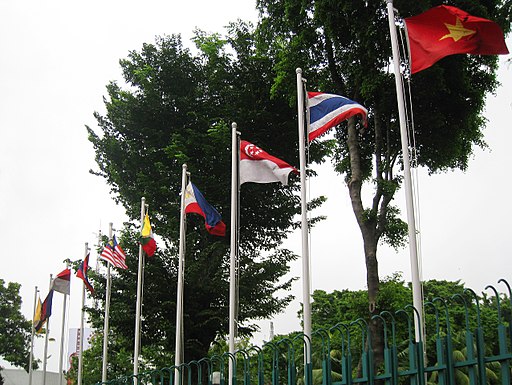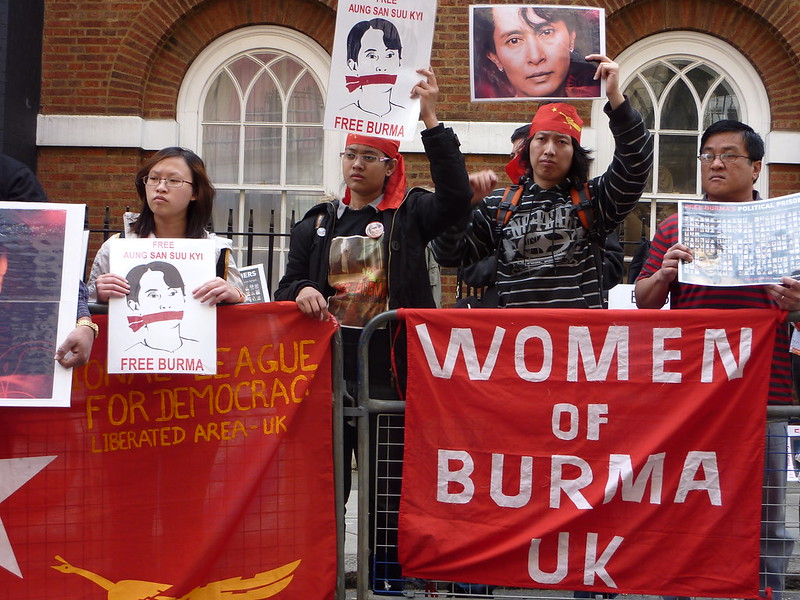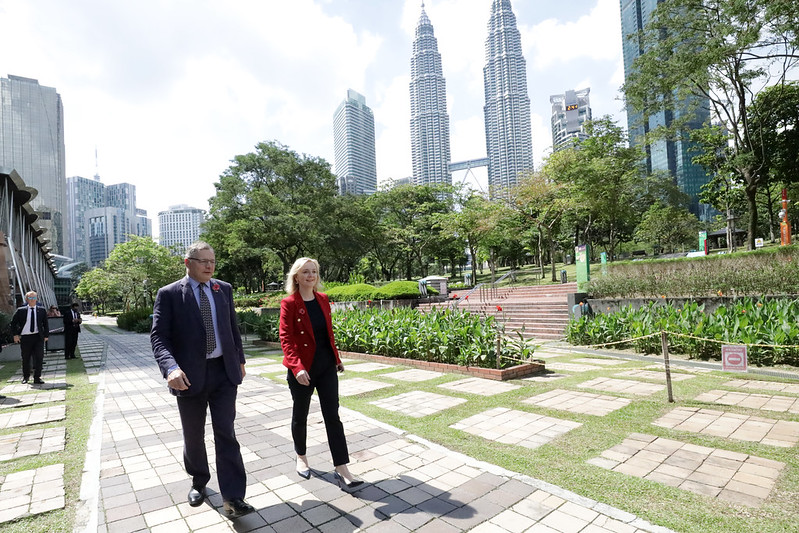Implementing the UK’s Indo-Pacific Tilt in Southeast Asia through equitable and sustainable partnerships

In June 2022, the University of Bristol hosted a workshop bringing together academics working on Southeast Asia. From a variety of disciplines, participants explored what an integrated presence could look like, and the different dynamics the UK needs to consider. This policy report summarises the findings of the workshop and offers policy recommendations for more effective engagement with Southeast Asia.
About the research
In March 2021 the UK published its Integrated Review, which announced a ‘tilt’ to the Indo-Pacific. The tilt provided a new direction for UK foreign policy, aiming to be the European partner ‘with the broadest and most integrated presence in the Indo-Pacific’. In August 2022, the UK and ASEAN released an ASEAN-UK Dialogue Partnership Plan of Action (2022-2026). It covered a comprehensive range of cooperation within ASEAN’s three pillars - political-security cooperation, economic cooperation, and socio-cultural cooperation.
Workshop participants
Timo Kivimaki (University of Bath); Laura Southgate (Aston University); Xinchuchu Gao (LSE); Xuechen Chen (New School of the Humanities); Ha Chae Kyoun (Cambridge); Bruno de Seixas Carvalho (University of Birmingham); Daniel Peterson (Deakin University); Ronan Lee (Loughborough University); Binh Trinh (Independent researcher); Asmiati Malik (Bakrie University); Christopher Choong Weng Wai (Warwick University); Lara Bianchi (University of Nottingham); Jordana Ramalho (UCL); Adam Tyson (University of Leeds); Omer Faruk Cingir (University of Malaya); Robert Yates (University of Bristol); Scott Edwards (University of Bristol); Tim Edmunds (University of Bristol); Christian Bueger (University of Copenhagen); Jonathan Rigg (University of Bristol); Ashley Dodsworth (University of Bristol)
Key Findings
Regional context
• Southeast Asia is a crucial region at the centre of the Indo-Pacific geographically and diplomatically. It has a population of over 600 million people, with a high proportion of young people and a combined market size of around $2.3 trillion. It consists of crucial sea lines of communication and is a major source of raw materials including around 60% of the world’s tin, 30% of rice cultivation, 85% of natural rubber, 90% of palm oil as well as being a significant source of oil, natural gas, and other non-fuel commodities.
• It is a complex and diverse region with highly uneven patterns of economic development and different political systems. There are also complex legacies of colonialism and the Cold War, which have led to a prominent role for militaries in domestic politics, ongoing communal tensions and divisions within societies, and political economies based on open and deep linkages with global supply chains alongside political patronage and protection for certain sectors.
• Despite some ongoing tensions, Southeast Asia (and East Asia more widely) has seen relative peace in the last half century compared with its past and with other world regions. This peace between states correlates with a convergence around a traditionally strong focus on development in the region. These states tend to have a strong role in guiding development, promoting norms of anti-hegemony and anti-interventionism.
• The Association of Southeast Asian Nations (ASEAN) is an important regional institution which acts as the primary forum for multilateral cooperation between Southeast Asian states. It is the key convener for multilateral engagement involving all major states in the Indo-Pacific through ASEAN Plus dialogues and the East Asia Summit. ASEAN Centrality, the term used to acknowledge ASEAN’s position at the centre of the Indo-Pacific regional architecture, is a highly regarded aspect of diplomatic culture within the region. ASEAN state officials are wary of actions by external partners which appear to challenge ASEAN’s Centrality.
UK’s desired roles in the Indo-Pacific and Southeast Asia
The UK has articulated three roles as part of its Indo-Pacific tilt – 1) leader on free trade and development; 2) security provider; 3) promoter of liberal values. The workshop participants discussed these roles and how well they may be received within Southeast Asia.
1) Leader on free trade and development –
• The UK has experienced some success in its trade diplomacy, including signing several Free Trade Agreements (FTAs) and finding support for its accession to the Comprehensive and Progressive Trans-Pacific Partnership (CPTPP). However, within this success it must be acknowledged that three of its FTAs in the Indo-Pacific are continuity agreements from EU FTAs. Likewise, acceding to the CPTPP would mean the UK joining an agreement which is already in place rather than one that is open to continuing negotiation.

• This suggests that although the UK may be seen as a supporter of free trade, it is not necessarily showing leadership in shaping the trading order in the Indo-Pacific. In the 2022 State of Southeast Asia (SoSEA) survey of officials, academics, business leaders and civil society actors across the region, only 1.8% of respondents chose the UK when asked who they have confidence in to provide leadership in championing global free trade.
• In terms of the UK as a partner for development cooperation, the workshop participants noted that the strong reputation of the Department for International Development has since been undermined by the merger with the Foreign and Commonwealth Office (now the Foreign, Commonwealth and Development Office). Together with cuts to Official Development Assistance and the explicit tying of ODA budgets to UK commercial interests, this has made it more difficult for the UK to claim it is a leader in promoting development, potentially putting it at odds with the developmental aims of regional actors.
2) Security provider –
• The UK seeks to be a security provider through its existing Five Power Defence Agreement, Five Eyes Intelligence Network, enhanced cooperation with the Quadrilateral Dialogue (Quad), enhanced bilateral security ties, AUKUS and an increased and consistent maritime presence.
• Demonstrating the complexity of the region, some actors - for example many Indonesian elites, especially in the military - were supportive of AUKUS and other security mechanisms that aimed to balance China’s influence.
• In terms of the UK, the SoSEA survey has shown an increase in respondents choosing the UK when asked about a trusted third party in the context of US-China rivalry since the announcement of the Indo-Pacific tilt. This should, however, be seen in the context of a broader desire within the region for third parties to support the diffusion of tensions between the US and China. There is still concern in the region that the UK’s alignment with the US means that it will be unable to act as an independent third party. There is also concern about the UK’s staying power in the Indo-Pacific region considering the security situation in Europe, the strain on its resources, and uncertainty in its domestic politics.
• There are overlaps between other forms of security provision where the UK can demonstrate leadership. The UK has released a new comprehensive Maritime Security Strategy, for example, that prioritises many of the same issues as regional states. It also has a strong focus on environmental issues including pollution, something that is seeing escalating cooperative efforts in the region.
3) Promoter of liberal values –
• The workshop found that this role was less evident in UK policy towards the Indo-Pacific than its stated economic and security roles. For example, the UK’s ambiguity in engaging with the National Unity Government in Myanmar and its reluctance to acknowledge that there is a genocide against the Rohingya (in contrast to the US) was noted. The UK’s approach towards Hong Kong was also discussed as a case of potential values promotion, but this too has a geostrategic dimension as well as being consistent with the UK’s efforts to attract high-skilled labour and draw in investment.
• The UK also had a low profile in the SoSEA survey in relation to upholding international law and the rules-based order with only 3.4% of respondents having the strongest confidence in the UK to provide leadership. This was well below the US (36.6%), EU (16.6%) and even China (13.6%).
• The workshop discussed different forms of inclusive participatory governance in the region, including women’s roles in post-conflict peacebuilding and non-profit organisations in local governance. Ongoing limitations, including a tendency to reinforce a hierarchy of external expertise at the top controlling how projects will be run, need to be recognised if the UK government and UK-based organisations are going to support substantive improvement in peoples’ lives in the region, and make good on the claim to be a promoter of equality.

Policy implications
• The UK should avoid approaching Southeast Asia assuming it is split between two competing power blocs. This formulation of geopolitical division does not map neatly onto the complex political, economic and cultural dynamics of the region. Southeast Asian states want to avoid having to make a choice between China and the US, and support engagement with all parties to the benefit of regional stability and economic growth
• The UK should also avoid too much emphasis on hard power, such as relying on the deployment of its Carrier Strike Group. The UK has potential strengths in capacity-building and other soft power resources. This requires commitment of resources to comprehensive bilateral and multilateral diplomacy across sectors, and an avoidance of traditional security alliances. A focus on maritime and environmental security could provide a bridge, given the region is also prioritising these issues.
• Diplomatically, the UK’s admission as an ASEAN Dialogue Partner is a success and can be used for engaging Southeast Asian states in a wide range of areas. It can also be leveraged to increase multilateral engagement with the region through participation as an observer or potential member of the ASEAN Regional Forum, ASEAN Defence Ministers Meeting Plus, and the East Asia Summit.
• The UK should approach the region with an open attitude seeking to learn what priorities and needs are emerging from those living in Southeast Asia. It should avoid trying to determine these needs beforehand and thereby risk the sense that UK priorities are being imposed upon the region.
• UK governmental and non-governmental bodies and organisations should reflect on their models and approaches for working with, and engaging, local communities in projects on the ground. They should avoid assuming that they already operate with best practice and instead seek out what they can learn through partnerships. This would be relevant not just for working with partners on projects in Southeast Asia, but also for how governance is undertaken in the UK.

Authors
Robert Yates (University of Bristol) and Scott Edwards (University of Bristol)
Further information
The workshop was funded by the SPAIS Grant Capture fund.
You can watch Dr Robert Yates giving evidence to the Defence Committee on the Indo-Pacific Tilt here (from 11:38:50).
Policy Report 73: Sept 2022
Implementing the UK’s Indo-Pacific Tilt in Southeast Asia (PDF, 762kB)